Topics:
Never Miss a Beat - Get Updates Direct to Your Inbox
FILTER:
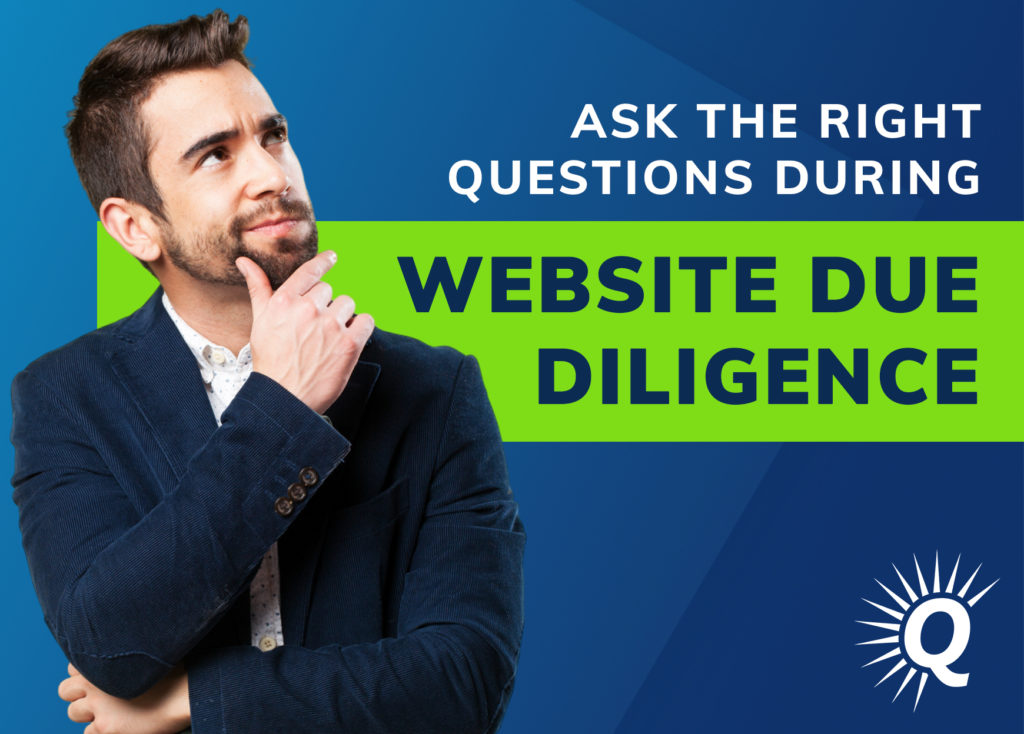

8 Questions to Ask During Website Due Diligence
By Quiet Light
You’ve put in countless hours researching and evaluating the marketplace, and now you’re ready to buy a website! Acquiring a website offers numerous benefits, including the opportunity to experience the freedom and flexibility that website ownership allows. Before you sign on the dotted line and close the deal, however, it’s important to take the time to complete website due diligence.
The due diligence process allows you to make sure the website you want to purchase is as good of an investment as it appears on the surface. Websites are often complex, and there are more digital pieces than meet the eye.
When you conduct website due diligence, you’re examining the website you’re thinking about purchasing. After the process is complete, you’ll be ready to enter into the negotiation process confidently.
In this article, we’ll cover:
- What due diligence is and why it matters when you buy a website
- Eight questions to include in your own website due diligence checklist
- What you can do as a buyer to help the due diligence process go smoothly


What Is Website Due Diligence?
After you’ve made an official offer on a website, there are a few crucial steps left before the deal is done. One of those steps is conducting due diligence. The due diligence process is how you make sure the website you want to purchase is just as promising as the seller has told you it is.
Due diligence can generally be summed up by two words: review and verify. You’ll request documentation from a seller to review. Then, you will verify the information.
Why does due diligence matter when buying a website?
Before we dive into the specifics of what makes a website a good investment, it’s important to understand why due diligence matters to you as a buyer. When conducted well, due diligence helps you:
- Learn more about the website you want to buy
- Confidently enter into negotiations with the seller
Getting to know a website inside and out
The purpose of requesting documentation and verifying seller claims is to get to know the website you’re interested in purchasing inside and out.
When you conduct proper due diligence, you’re able to identify and analyze the website’s business model and its current trends. You’ll learn about the business’s strengths and also get a look at its weaknesses. Identifying weak spots could also shed light on aspects of the business you could improve to make the website more profitable.
Knowing a website’s strengths and opportunities for growth is critical to your decision process as an investor and buyer.


Enter into negotiations confidently
Once you conduct website due diligence, you can confidently walk into the negotiation process knowing everything you need to know.
For instance, let’s say a website owner shared traffic numbers with you that were vastly different from the metrics you discovered during due diligence. If that discrepancy is documented, you could be able to negotiate a better purchase price for the website.
“The due diligence process allows you to make sure the website you want to purchase is as good of an investment as it appears on the surface.”
Buy a Profitable Online Business
Outsmart the startup game and check out our listings. You can request a summary on any business without any further obligation.
Eight Questions to Ask during Website Due Diligence
There are a variety of areas you should review and verify during due diligence. When you put together a due diligence checklist, you’ll want to make it answers the following questions:
- What is the current traffic volume for the website?
- Where does the traffic come from?
- What story do the business financials tell?
- Is the website operating under up-to-date licenses?
- What trends might impact future website profitability?
- Is the website business well documented and are systems in place?
- What do the current website metrics tell you about the website?
- How does the website compare to its competitors?
What is the current website traffic?
Examining website traffic metrics is a crucial step of website due diligence. Start by utilizing digital tools such as Google Analytics to take a closer look at how many visitors the website receives and how those visitors behave once they’ve found the website.
During the due diligence process, make sure that any third-party documentation aligns with the numbers the seller provided to you during your initial conversations.


How are customers finding the website?
Not only is it important to know the quantity of visitors a website sees, but it’s also necessary to know the quality of those visitors. How do website customers currently find the website? In a perfect world, the current website owner has a diverse content marketing plan in place.
Is a majority of the traffic organic, or do most people discover the site through paid ad campaigns? When you take a closer look at traffic sources, you’ll discover what is working well for the website as well as areas for improvement. This can help you put together an effective acquisition strategy if you decide to purchase the website.
Do business financials reveal a website that is growing and profitable?
Another key component to review and verify during due diligence is the website’s financial data. This gives you insight into which components of the business are generating the most profit as well as what business expenses there are. Financial statements also allow you to see historical business trends.
When you’re reviewing and verifying business financials, look for clean and well organized financials that tell a clear and understandable business story. Clean, verifiable financial documentation reveals a seller who has managed their business well.
You also want to read between the bank statement lines and see if the website you’re interested in is growing and profitable. Does owning this website excite you? Will you be able to grow it after becoming the new owner? And does it make financial sense to invest in it?
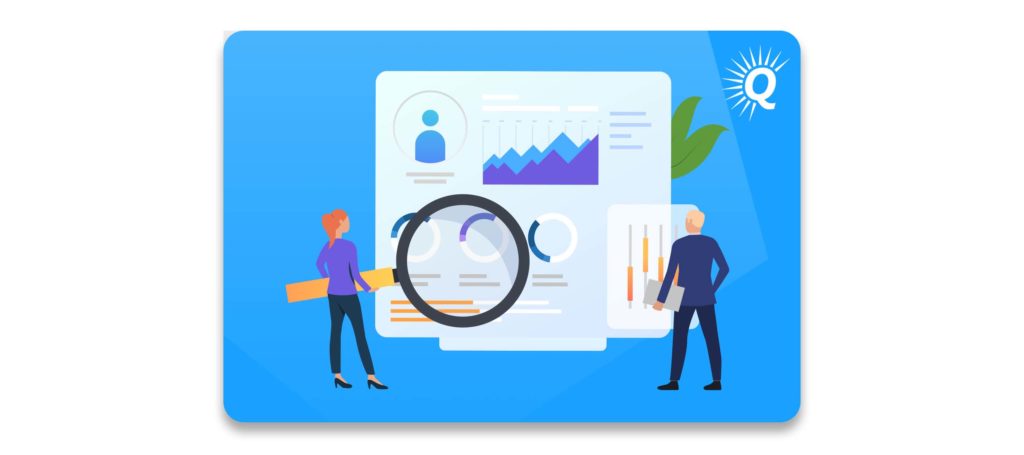

As the buyer, you can request the previous two years’ worth of financial statements. As you request statements, make sure you also are given access to third-party records to verify the financial statements the seller shares with you.
You can typically request the following financial documentation:
- Bank account statements
- Statements from advertising accounts
- Invoices from vendors and suppliers
Are all licenses and permits up to date?
Other aspects of a website to verify during due diligence are licenses, permits, trademarks, and intellectual property. If a trademark license is required to run the website, can the seller provide up-to-date documentation?
If the current website design utilizes images, audio, and video, does the owner have proper ownership or permission to use the media? Finally, if the website you’re interested in purchasing is an online business website where customers can purchase products or services, ensure that specific licensing requirements are being met.
What trends could impact the website in the future?
While part of the due diligence process is establishing an understanding of the current state of the website, it’s also important to look to the future. Business trends can tell you about the direction a website is headed.
Thinking of Selling Your Business?
Get a free, individually-tailored valuation and business-readiness assessment. Sell when you're ready. Not a minute before.
There are numerous trends to pay attention to, but examining the website’s revenue and earnings will give you a big-picture view of the site. You can learn more about revenue and earning trends by looking through third-party-verified financial statements. This information can help you determine business value, which will impact your final offer price during the negotiation process.
Looking at SEO ranking, traffic sources, and behavior can also help you form a picture of the potential future of the website.
Are there systems and processes in place?
Think about your ideal first day after purchasing this website. The easier it is for you to hit the ground running, the better. During due diligence, pay attention to the systems and processes currently in place.
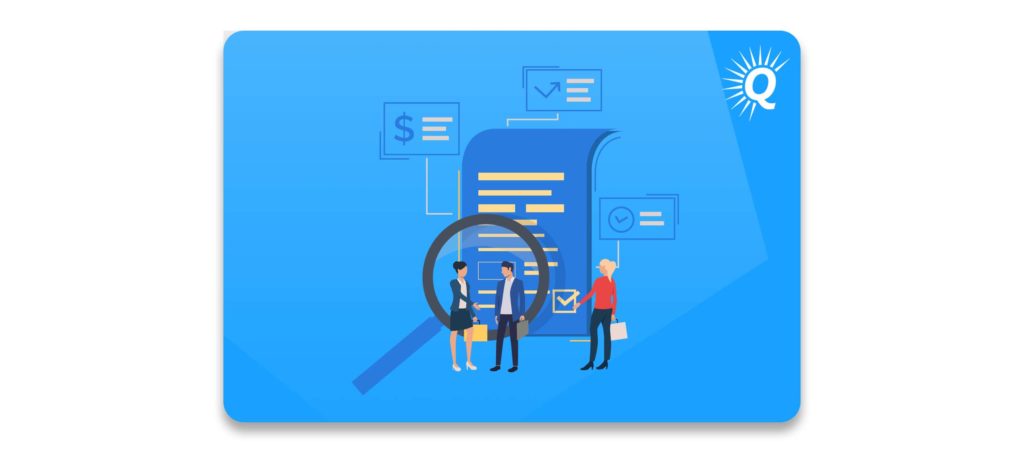

If the current owner is the sole source of highly specialized knowledge around the website and he or she doesn’t have good documentation or processes in place, transitioning to a new owner could be challenging.
“In an ideal world, the current website owner built their business with selling in mind.”
Meanwhile, if there are clear systems and you know when and where to locate key information, the transition period is much simpler. Ideally, the current website owner built their business with selling in mind. Their documentation process can make or break the transition period for you as a potential new owner.
What do current website metrics look like?
Web analytics services such as Google Analytics and analytics tracked by the website’s hosting services allow you to get a detailed look at website performance. These reports can give you insight into multiple metrics concerning the health and future success of the website you want to purchase.
Before acquiring a new website, it’s important to take a close look at the following metrics during the due diligence audit process:
- Current SEO rankings
- Page views
- Bounce rates
- Visitor session data
- Unique user numbers
- Conversion rates
- Top pages
- Domain name and history
- Current costs associated with maintaining the website
- Broken links
- Online reputation through ecommerce product reviews or website comments
What kind of competition does the website have?
Finally, you’ll want to take the time to review the website’s competition. Browse through competitor websites and see who the top players are in this specific market. You’re looking to see how your website lines up in relation to the current competition.
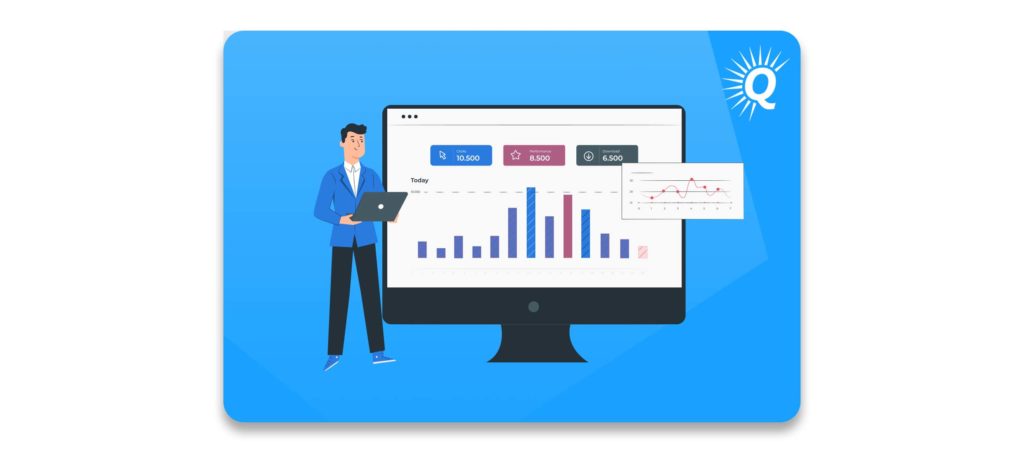

While reviewing marketplace competitors, ask yourself:
- What is this website’s current position in the digital marketplace?
- How defensible is the website?
- What are ways the defense can be improved?
- Do competitors have any clear advantages over the site you’re thinking about buying?
How Can You Prepare for a Smooth Due Diligence Process?
Even though the seller is responsible for gathering information and providing documentation, you can help the process go smoothly as a buyer. Some ways you can prepare for the due diligence process include:
- Discovering all you can about the website before you make an offer
- Knowing what questions you need answered during due diligence
- Resisting the urge to rush the due diligence process
Questions to ask before you make an official offer
You more than likely have a long list of questions you want answered as a buyer. We encourage buyers to group their questions into two categories:
- Questions to help you discover more about the business before you make an offer
- Questions to ask the seller during due diligence after you’ve made an offer


It’s important to get answers to your questions both in the discovery and due diligence phases. If you don’t ask your discovery questions before the official offer, you might run into complications in the later stages of the deal.
Those complications can include everything from delays in the process to cancellations of the whole deal.
“If you don’t ask your discovery questions before the official offer, you might run into complications in the later stages of the deal.”
Questions to ask yourself during the discovery period
Some questions you could ask during the discovery period (before the offer) include:
- Is this a website you want to purchase?
- Do you have the skills necessary to run a website or the finances to outsource what you don’t know how to do?
- Does this website business require you to hire additional staff?
- What would a smooth transition look like after your purchase of this website?
- Do the numbers the seller is sharing justify their asking price?
- Are you confident in the metrics and stability of the website?
- Are the current marketing budget and traffic sustainable?
- Can you verify any licenses required for doing business on the website?
- Do I have financing available for this purchase?
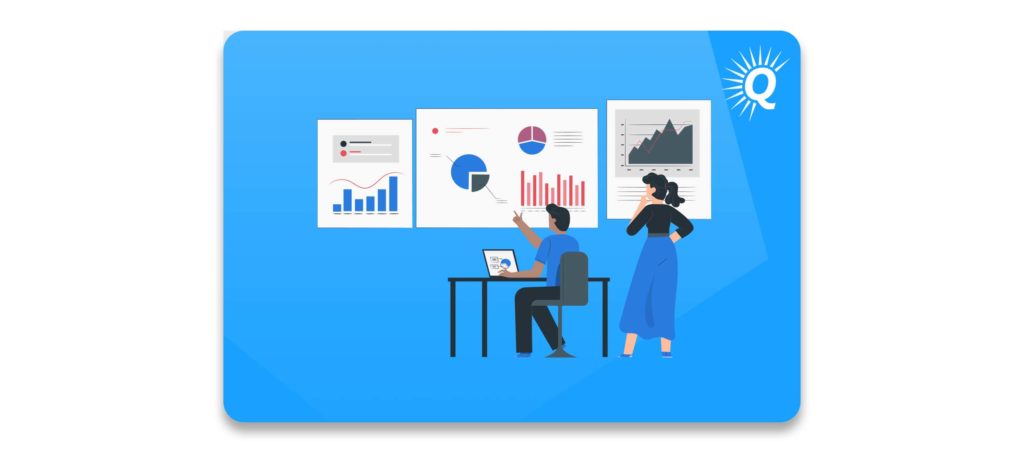

When you answer these questions, you’re giving yourself the chance to define your goals and dreams as an entrepreneur. The answers to the above questions will help you enter into the due diligence verification process confidently.
Topics to focus on after you make an offer
After you make your official offer, it’s time to verify the claims made by the seller. When you’re purchasing a website, there are some topics specific to digital due diligence.
Some of the topics to cover during the due diligence process include:
- Third-party documentation
- Verification of financial information
- Trademarks and licensing
- Intellectual property
- Website metrics
Take the due diligence process slow and steady
During the due diligence process, your goal should be to learn as much as possible about the website you want to purchase. It can be tempting to speed through this process to close the deal and start making your website ownership dreams a reality.
But if you rush through the due diligence process, you may run into some unfortunate surprises later that could have been avoided by asking the right questions at the right times.
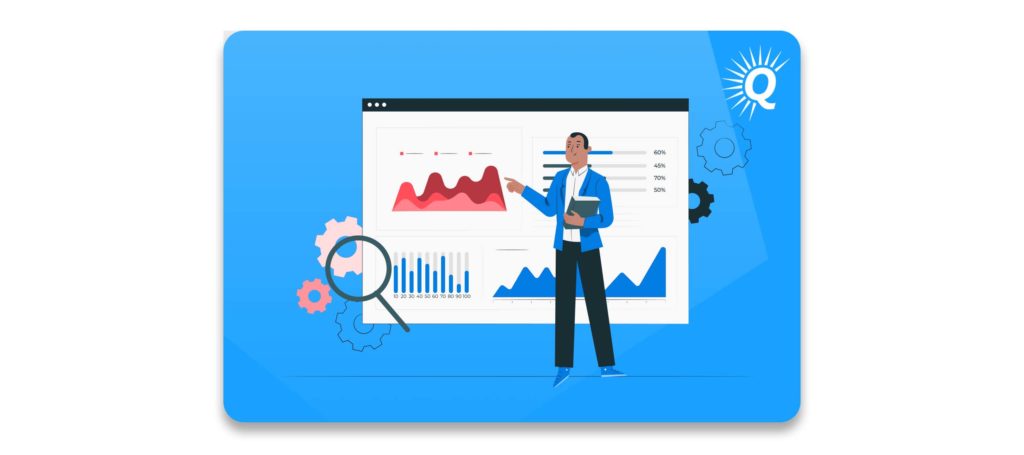

Conclusion
When you’re sorting through the due diligence process, it’s crucial to make sure no details are left out. Whether you’re looking through website traffic numbers or verifying add-backs, take the time to get to know as much as possible about the website you’re interested in purchasing.
By conducting proper website due diligence, you’ll be able to lead your brand-new website to success as soon as you close the deal.
Buy a Profitable Online Business
Outsmart the startup game and check out our listings. You can request a summary on any business without any further obligation.





